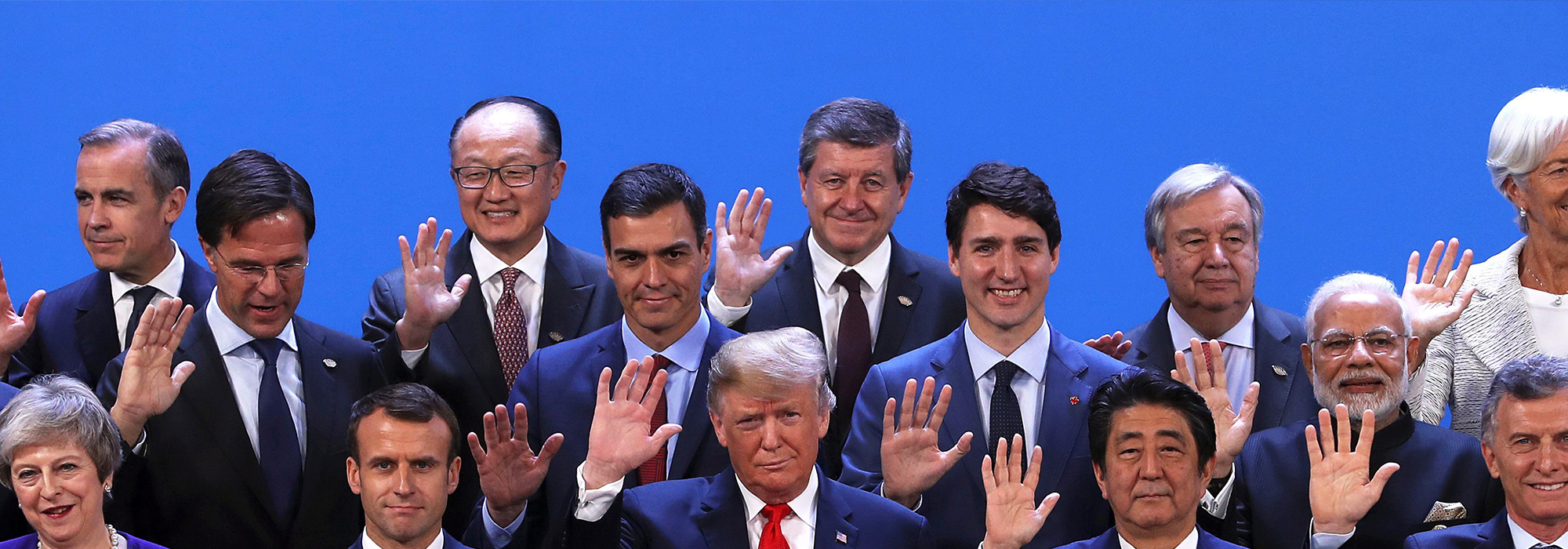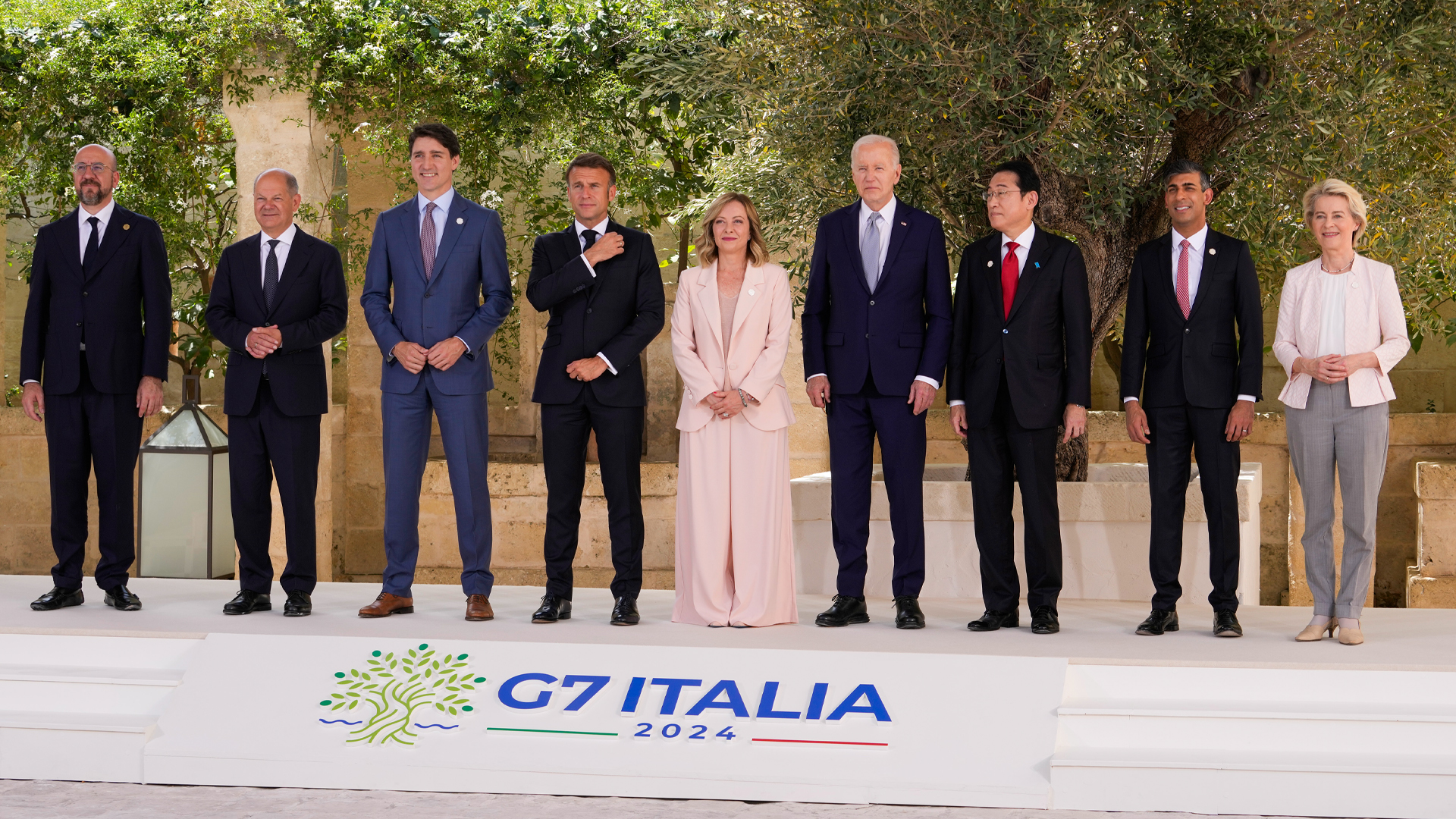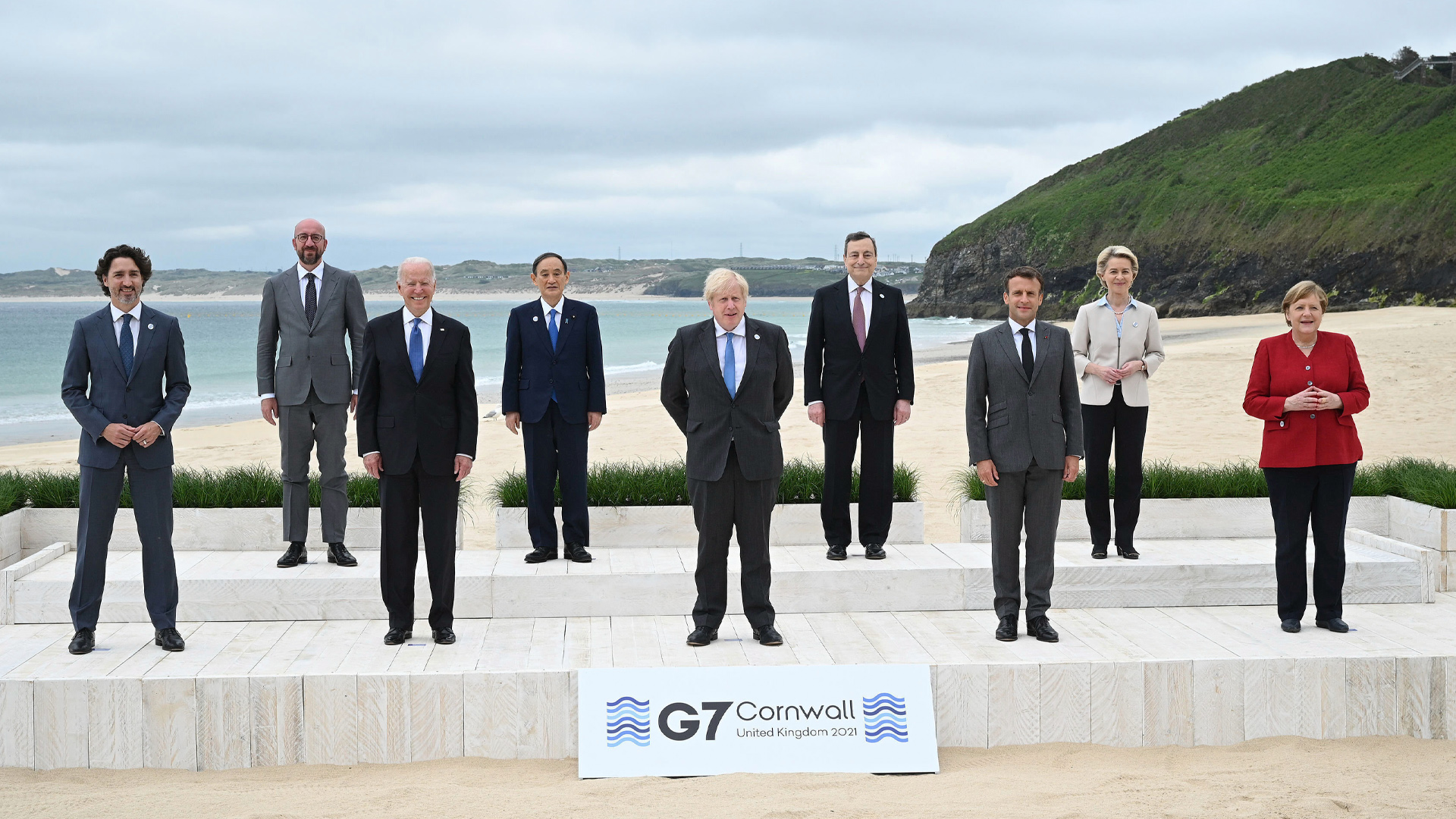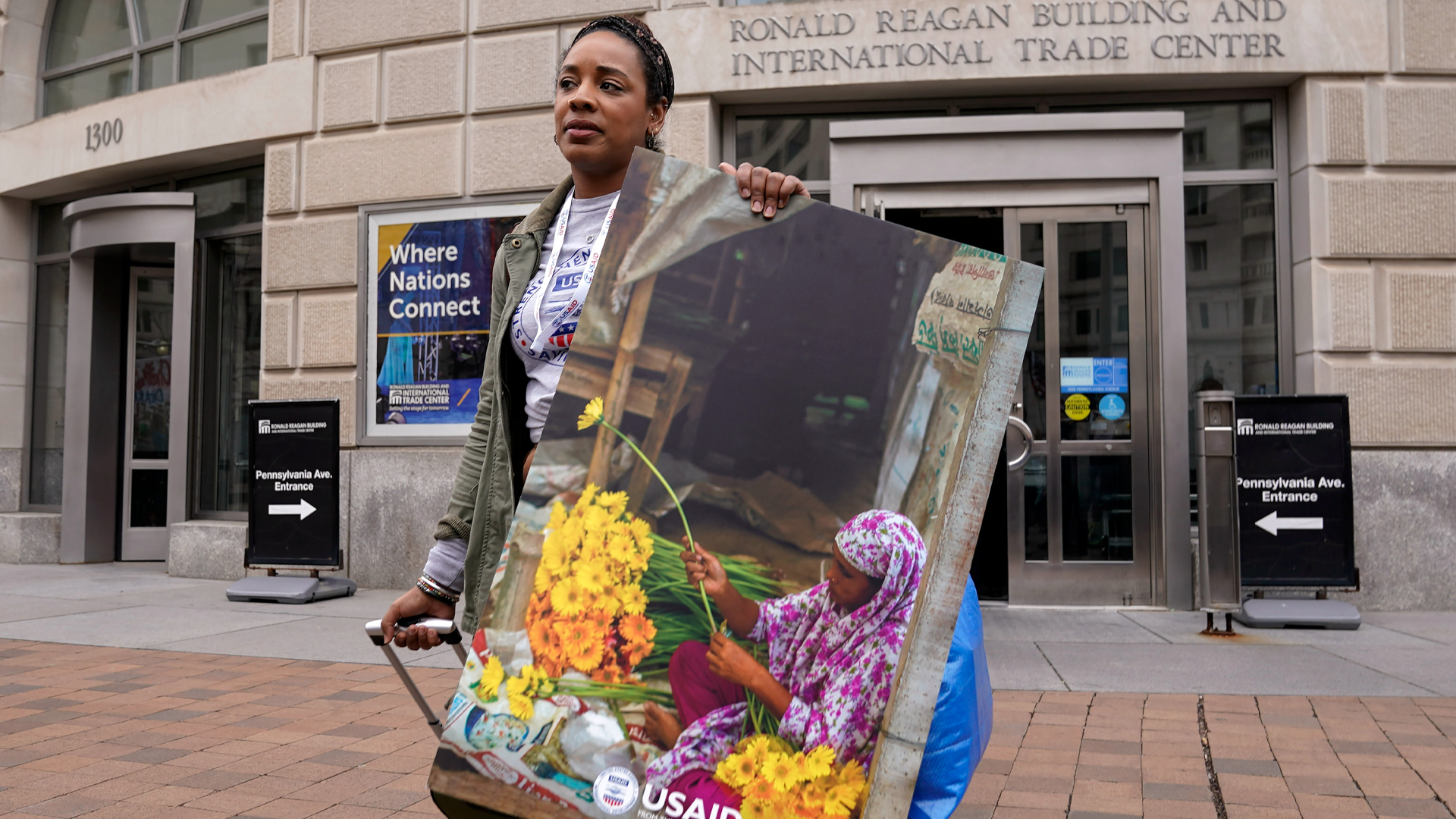
It’s time for the G20 to evolve. Canada’s Paul Martin conceived of it as a crucial response to the 1999 Asia financial crisis, and its membership now embraces 85 percent of global gross national income (GNI).
But times have changed, and the G20 needs to reflect the transformation of the global economy.
Developing and emerging countries, notably the BRICS, represent close to 60 percent of global GNI and now substantially outweigh G7 members, whose share is just over 30 percent and falling.
The G20’s initial mandate for addressing global finance and banking is increasingly seen as too narrow. All the G20 leaders are as concerned as Canada is about trade, development, peace and security and human rights. But change is slow, with now-less dominant G7 members that are protective of their privileged leadership, and other developing-country members who are frustrated but hesitate to press for radical change.
One key constraint in the G20 is the inertia and wariness of potential leaders in the face of US President Donald Trump’s disruptiveness in economic and geopolitical affairs.
Another obstacle is that many G7 countries, including Canada, hesitate to see the G20, with the increasingly assertive developing-country members, as the forum of choice for geopolitical dialogue in which north and south would be equal partners.
At the latest annual G20 Leaders’ Summit, which ended in Buenos Aires on December 1, Argentina’s President Mauricio Macri set out an agenda that pushed for better jobs and people-centred development.
The final communiqué yielded no surprises. It endorsed the need for a greater focus on quality employment and more investment in infrastructure, and it supported (except for the US) a BRICS-led dialogue on a reformed World Trade Organization. In all, the communiqué included 88 commitments, but many were repeats from previous summits.
A regular G20 theme is fiscal discipline. In this, Argentina is not the best model, given that it recently borrowed $57 billion from the International Monetary Fund ─ the largest loan in the IMF’s history.
The G20 has chosen to function a lot like the G7. It holds thematic often-ministerial meetings in the months before the summit, and its agenda is replete with follow-up on unfulfilled promises from previous summits.
In Buenos Aires, the mandatory photo-op closed with Disruptor No. 1, President Trump, showing his bad manners by walking out, leaving the Argentinian president standing on stage confused.
The draft communiqué is often leaked, in this case to the UK Financial Times a few days before the meeting. It is nominally negotiated between all the G20 sherpas, and is a glimpse into the various heated political rivalries. This time for summit participants, it became an exercise in spotting the re-drafting by a single-minded US, which demanded the deletion of everything judged as offensive according to Trumpian “truths.” This included deleting any mentions of protectionism, and a formal US statement that it does not believe in the need for any action on climate change even though other G20 leaders had all agreed that such action is crucial for planetary survival.
Thus goes Trump-driven international cooperation!
The summit was also a low-key celebration of the 10th anniversary of the transformation of the G20 from an informal gathering of finance ministers into a full-scale summit of global leaders, presidents and prime ministers. A new G20 Leaders’ Summit was born to drive the critical rescue operation for the 2007-08 global financial crisis after G7 leaders very quickly recognized that they were acting alone, without the financial capacity or credibility to lead the rescue. This effort came to be shared by all G20 nations, but most notably involved a very effective US and Chinese-led partnership. This collegiality stands in sharp contrast to the tense realities and US arrogance and determined self-interest shown at the Argentina summit.
The G20 needs to rebuild its sense of purpose.
Its diverse membership needs to be fully engaged, even though quite a few members are under-performing in today’s economic disarray. Most of the BRICS are no longer glittering: The most notable component of this fading performance is economic and political setbacks in Brazil and South Africa. China has the world’s second largest economy. Its president, Xi Jinping, is a self-defined global leader who is mobilizing the country’s economic clout and increasingly skilled labour force for the long haul. However, even China’s economic stance is rather fragile due to US punitive tariff actions. And in the meantime, its long-time rival India is having a healthy growth spurt.
Meanwhile, Trump has no global strategy, and his egoistic “America First” game-plan is most likely not viable.
As the G20 Summit closed, there was a tense mini-G2 meeting: The official photo showed 10 stony-faced men in dark suits sitting across from each other at a long dining table as Presidents Xi and Trump wrestled over the question of tariffs. Trump hyped the meeting as “amazing.” Xi, playing for the geopolitical longer-term, showed more restraint.
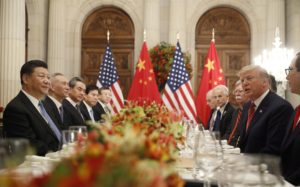
Given today’s harsh climatic realities, including widespread fires, storms and droughts, one might ask whether a few G20 leaders should have berated themselves for the seeming folly of refusing to acknowledge the dangerous levels of atmospheric carbon that the Intergovernmental Panel on Climate Change has once more warned us about.
Or were those G20 leaders more focused on keeping out of range of a Trump tweet, or perhaps watching nervously to see who might blink first in that mini-G2 confrontation between Presidents Xi and Trump? Maybe they were worrying about how to look the other way when a certain ruthless crown prince strolled past them during the coffee break to maybe seek forgiveness for the killing of a famed journalist or for the starvation of millions of people, most of them children, in Yemen.
With much of the political action happening outside the formal meeting room in “pull-asides” by key leaders, there were likely opportunities for leaders of G20 emerging economies to quietly huddle and discuss how to improve a G20 that is equally theirs.
At a leaders’ ASEAN Summit in November, the stormy public US-China confrontation left some in the G20 fearful that their fragile populations and neighbouring countries could also suffer collateral damage, and lead to tensions. The US president should also be fearful given that his large political base of poor, blue-collar Americans faces the prospect of similar economic pain!
In the run-up to the next G20 summit in Japan, emerging-country members might choose to band together and suggest to other participants, including hesitant G7 members, that they favour a dialogue on improvements to the G20, including a more strategic agenda and a more inclusive G20 institutional framework.
Many commentators are raising concerns that the longer-term global future will be increasingly shaped by head-to-head geopolitical competition between China and the USA, notably over globalization vs. protectionism. Can we hope that bolder middle-power G20 leaders start calling for a truce and for some basic order to be restored to the global economy and politics?
This type of a geopolitical restructuring will be essential if the international community is to meet its commitments under the Sustainable Development Goals, notably the elimination of poverty, which is still a problem across Africa and in a few BRICS nations, notably India, Brazil and China. Any reform agenda for the G20 needs to be harmonized with the work of the UN.
Over the long term, frequent conflict and competition between the global powers is one important rationale for broadening the G20’s geopolitical mandate. This should at the very least include support for, and policy partnerships with, the international actors that are active in peace-building, migration, climate change and the UN Agenda 2030.
The G20 should work harder to fix the flaws in specific global financial systems. It needs to work on a major reform package for a much-abused World Trade Organization. And it should help key global institutions mitigate the negative effects of excess competition on millions of people, especially the poorest.
Recent global tensions have been disruptive for developed and developing countries alike. For these tensions to be resolved, there must be a geopolitical transformation, and above all the global culture must be less aggressively competitive and more inclusive. A reformed G20 could contribute to that transformation given that it is free of the political vetoes that often render the UN Security Council ineffective.
Such geopolitical transformation needs bolder, collegial political leadership, not bullying “America First” tactics.
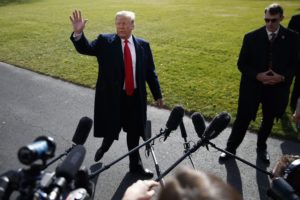
Recent tensions have been largely triggered by a US president who sees no merit in a global rule-based system, one he has falsely accused of being unfair to the US. He prefers an America-centric agenda, one with punitive tariffs, which he has applied almost equally on supposed enemies, China and Russia, as well as allies: the EU, Japan and Canada.
Some analysts suggest that a broader agenda and a more inclusive membership could weaken the G20’s effectiveness. But, the G20 could revive the French idea of creating a modestly sized apolitical secretariat that would assure continuity between meetings in a more orderly and efficient way than the current sherpa-and-troika system composed of individuals who are loyal to individual countries. The secretariat could be staffed by perhaps 100 core professionals plus individuals seconded from a balanced mix of member countries, all working with a clear mandate to bring new ideas to the G20 table.
The traditional G20 policy interests of finance ministries could be handled as now with special sessions of experts, perhaps meeting in some coordinated manner with the IMF and its technical committees. The group’s chair, a senior G20 finance minister selected by his peers, could present their ideas and recommendations at a special summit session.
The sherpas could still meet, but less frequently, and often through teleconferences with secretariat staff. Less globe-trotting air travel might be a modest collateral benefit.
Inclusiveness should become a core requirement for a more credible G20. All of the member countries need to have a meaningful voice in G20 deliberations. In recent years, the G20 dialogue has often appeared to be dominated by the demands of competing major powers. In Argentina, substantive discussion was often sidetracked by the Xi-Trump mini-summit on trade disputes. Could that “G2” policy discussion have been improved by having a couple of collaterally damaged G20 leaders actually at the table?
What’s next for the G20?
G20 countries already comprise about 65 percent of the world’s population. But there is one serious lacuna: The other 35 percent has no G20 presence. Most overlooked is the population of the world’s most needy nations, those we call Least Developed Countries and fragile states (g7+). Perhaps at next year’s summit in Tokyo, Canada and other countries committed to bringing poverty and gender equality to the global agenda could propose the creation of a permanent poorest-country seat at the G20 table to give voice to “those left behind,” a policy mantra for the UN and other development institutions.
Canada recently had its opportunity for leadership at the G7 summit in Charlevoix in June 2018. The meeting ended in a bizarre display of Trump-driven disruption but did help to put gender issues and funding for education at the top of the global agenda. In Argentina, Canada seems to have trodden more warily, satisfied with a photo-op and the signing of the new NAFTA.
Looking forward, the question remains as to whether Canada and other internationalist-minded nations will take the lead and propose an enhanced G20 that has a more broad-based and inclusive mandate, and one that takes a lead role on important global issues such as climate change and global inequality.
In its efforts to be seen as back on the world stage, Canada could be more active in the G20, building friendly, multi-faceted partnerships, notably with its emerging-countries members. They are not to be dismissed: Many of them along with the poorest countries “own” the votes Canada is seeking as a candidate in the ballot for a UN Security Council seat in 2020.
Photo: The heads of state of the G20 countries, including (first row L-R): British Prime Minister Theresa May, French President Emmanuel Macron, US President Donald J. Trump, Japanese Prime Minister Shinzo Abe and Argentinian President Mauricio Macri pose at the G20 Summit at the Costa Salguero convention center in Buenos Aires, Argentina, November 30, 2018. EPA, by Ballesteros.
Do you have something to say about the article you just read? Be part of the Policy Options discussion, and send in your own submission. Here is a link on how to do it. | Souhaitez-vous réagir à cet article ? Joignez-vous aux débats d’Options politiques et soumettez-nous votre texte en suivant ces directives.




